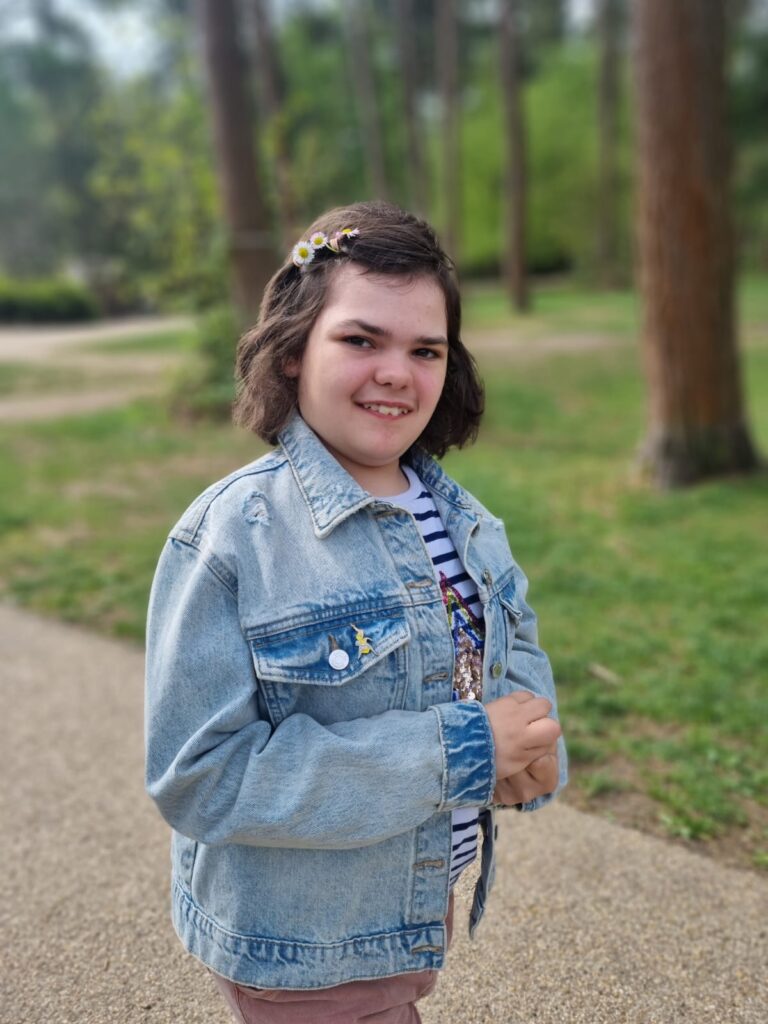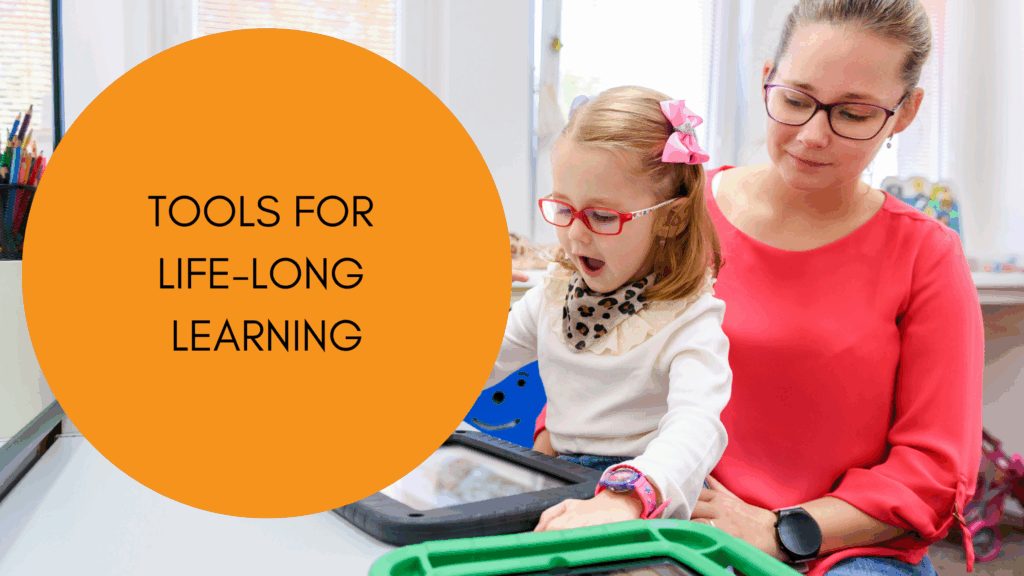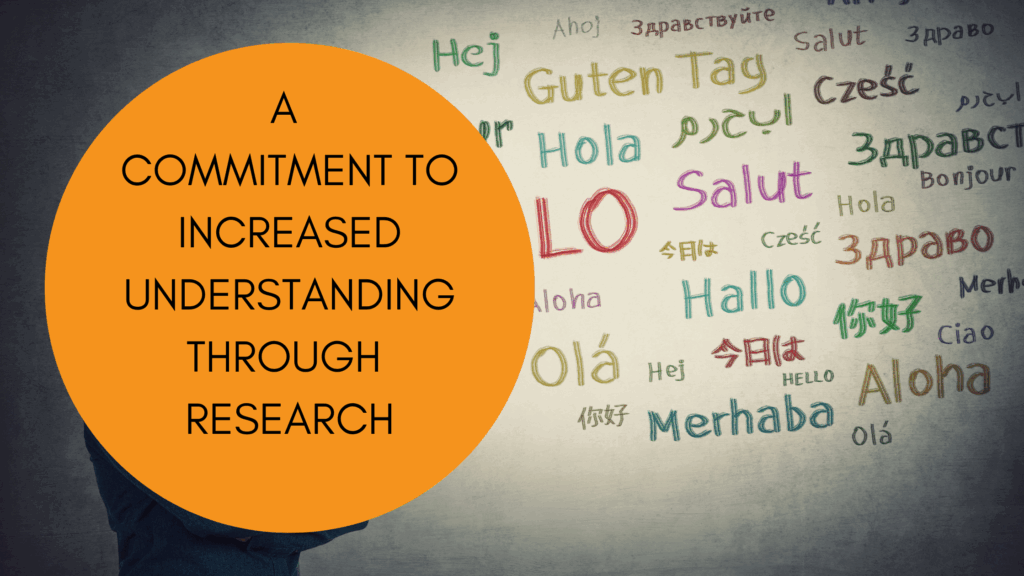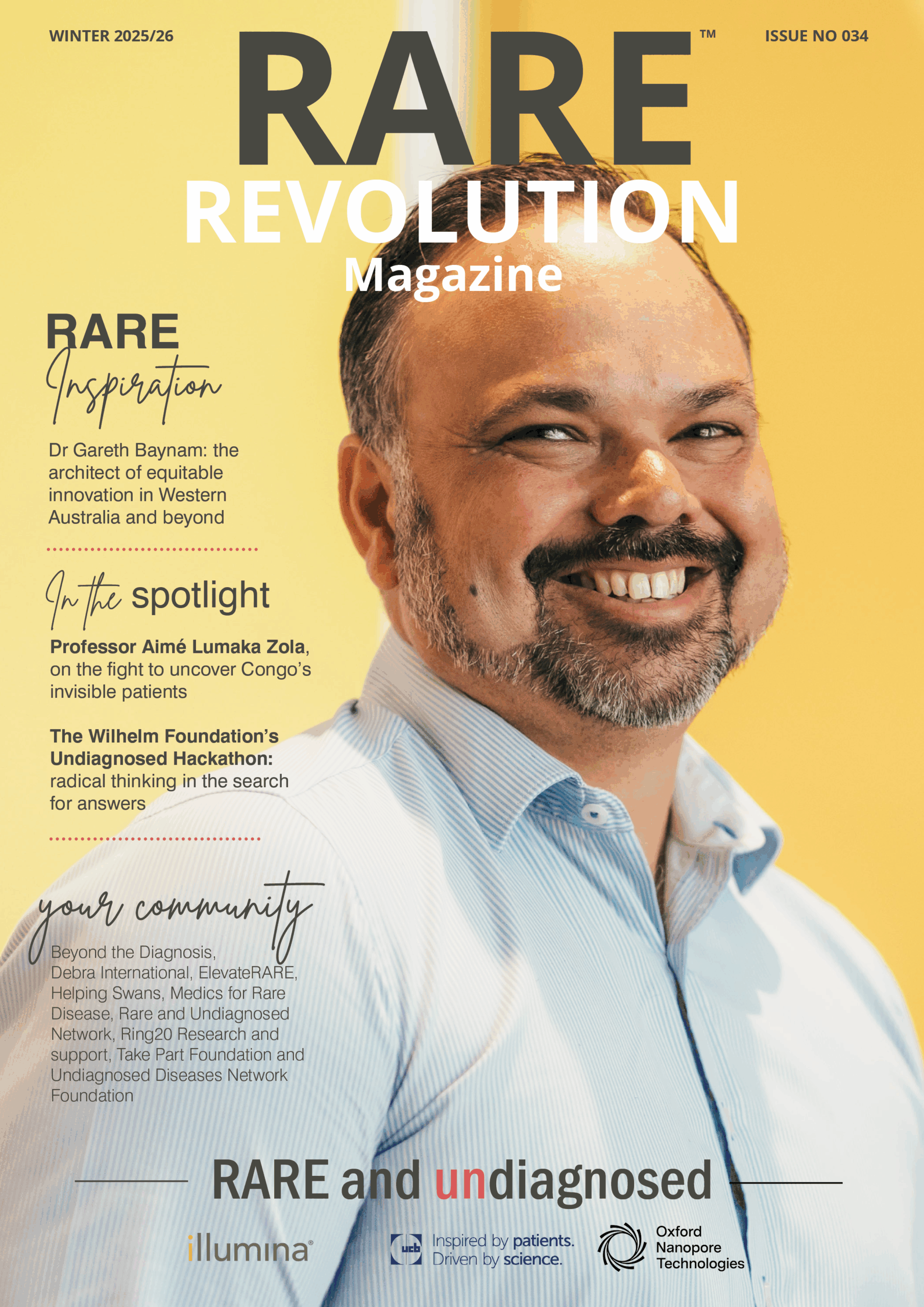Rett UK: supporting communication, life-long learning and emotional well-being
FUNDED BY ACADIA PHARMACEUTICALS GMBH

Once misunderstood, the communication and learning abilities of people with Rett syndrome are now being redefined thanks to pioneering research, innovative technology and the dedicated programmes of Rett UK—offering new hope and practical support for families across the UK and beyond
Written by Nicola Miller, RARE Revolution
Interview with Abigail Davison-Hoult, community and education support, Rett UK
Historically, due to the loss of verbal speech and purposeful hand use, combined with the unsuitability of standardised assessment methods for this condition, communication and learning in Rett syndrome were misunderstood. Many medical and education professionals believed patients had severe cognitive deficits and limited potential for both communication and ongoing learning. Over time, families and advocates observed abilities that defied these assumptions, suggesting that many individuals with Rett syndrome may understand and learn far more than previously thought. Recent research has demonstrated that there is a typical variation in cognitive and learning abilities within this Rett syndrome community akin to that in the neurotypical population.1
This shift in perspective is due, in part, to the wider use of communication tools, such as eye gaze technology and the subsequent development of targeted programmes to support its use.
Abigail Davison-Hoult—whose daughter, Esme, was diagnosed with Rett syndrome in October 2013—attended a parent-led Rett Education conference in 2014. There, she met Susan Norwell, a special education teacher from Chicago, who specialised in communication techniques for those with neurodevelopmental delay, specifically people with Rett syndrome. This sparked a movement among a small group of UK families to bring this expert knowledge home. “As a parent, I made it my duty to learn about it. I received instruction on the techniques from Susan. A handful of us funded her coming to the UK to meet with families, where I began to shadow her to learn all I could,” Abigail recalls.


Over the next couple of years, Rett UK experienced some restructuring, bringing various Rett initiatives under one umbrella and in 2017, received a significant legacy donation that allowed for further growth. This growth allowed Abigail, alongside colleagues Callie Lawrence and Tracey Campbell, to transition from parent advocates to programme leaders. Recognising a need, they were able to build on their collective passion for developing comprehensive communication support. They were joined by Dr Gill Townend, a speech and language therapist and academic researcher who now lectures at the University of Reading. “Together, we provide a phenomenal and globally unique service. I’m very proud of us,” Abigail reflects, underscoring the team’s impact on the charity’s mission.
Since this time, Rett UK has played a pivotal role in reframing the narrative around communication and potential for life-long learning within Rett syndrome which they do through a comprehensive—and ever-growing—range of programmes and services designed to enhance quality of life.

Central to their work is the Communication and Education Project, which empowers individuals through innovative tools and resources. This includes the Device Trial Programme, where families can borrow and trial eye gaze devices—a crucial communication tool for many with Rett syndrome—before making significant personal investments in the technology. Participants receive technical setup, training and dedicated ongoing support from experienced staff, ensuring the best possible outcomes.
Recognising the importance of effective support networks, Rett UK also offers training in “How to be an effective communication partner,” a two-part virtual course for parents, professionals and anyone involved in the lives of those with Rett syndrome. This training is vital as Abigail explains, “The responsibility for all this should not fall to the person with Rett syndrome. The responsibility is on everybody around them who is facilitating the communication and interpreting it.” She explains, that without the right tools and partners, individuals are “set up to fail,” and lack of engagement might be seen as “lack of cognition or behavioural issues”, or often is misinterpreted as tiredness. “Instead, we know that despondency is typically down to ineffective tools and strategies,” meaning individuals are unable to express their needs. Historical options are deeply limited, for example, “do you want a book or a banana!”. “This does not give individuals the ability to express their desires, abilities or emotions, so without the right support for all involved (individuals and communication partners), we see people shut down and disengage.”
Monthly online workshops further reinforce language modelling and communication strategies, providing practical guidance for families and educators. Language modelling is a communication strategy where partners—such as parents, teachers or therapists—use the communication tools (like speech generating devices, symbols or eye gaze technology) in everyday situations. By consistently using these augmentative and alternative communication (AAC) methods to express choices, feelings or needs, amongst other things, communication partners support individuals with Rett syndrome develop the skills to use them themselves, without pressure to respond immediately. This approach builds understanding, confidence and autonomy in communication over time. The organisation’s commitment to such workshops and resources extends to developing online content also covering literacy and numeracy. These materials are continually updated to reflect the latest research and best practices. Allowing individuals to not just learn basic communication but to learn to read and write and understand numeracy and mathematical concepts. Although the teaching methods need to be adapted and the learning time is longer than for someone without the many symptoms and complex difficulties faced by those with Rett syndrome, research demonstrates that these individuals are able to offer much more than might at first be assumed.
Mental health and well-being are also prioritised, with initiatives and resources addressing the emotional challenges faced by individuals with Rett syndrome, including the heightened risks of depression and anxiety. Family support is a cornerstone of Rett UK’s mission, offering direct guidance and advocacy to help families from diagnosis to bereavement counselling and beyond. This includes support and expert advocacy when navigating complex education and healthcare systems. Importantly, people with Rett syndrome are actively involved in developing and testing resources, ensuring that programmes remain relevant and accessible.

Rett UK is also committed to contributing to research, and currently Abigail is working on a PhD on the topic of communication in Rett syndrome. Abigail’s research aims to go some way towards dispelling the longstanding misconceptions that individuals with Rett syndrome have severe cognitive and communicative limitations, often based on outdated or anecdotal evidence. Her research aims to systematically analyse video data to uncover the subtle, consistent ways in which people with Rett syndrome communicate—insights that are frequently missed in clinical or educational settings. By identifying these reliable cues, Abigail hopes to provide concrete evidence that challenges prevailing assumptions, ultimately contributing to a change in professional practice and policy. The outcomes of her work have the potential to transform how individuals with Rett syndrome are assessed, supported and empowered to express their true capabilities.
Furthermore, and in recognition of the diverse family constructs of today, the organisation is also engaged in advancing support for bilingual communication among individuals with Rett syndrome. Ongoing research, including a PhD study by Abigail’s colleague, Rebecca Day, FHEA at Bangor University, has shown that people with Rett syndrome are capable of learning additional languages in much the same way as their neurotypical peers. This work is particularly relevant for the many bilingual and even trilingual families within the community. Abigail points to an example, “Romi, a young woman with Rett syndrome, has successfully completed a German language course and is able to communicate with her German-speaking relatives in their native tongue.” These findings are helping to dispel myths about language learning limitations and are guiding the development of resources and strategies to better support multilingual communication for all families affected by Rett syndrome.
Through these multifaceted initiatives, Rett UK continues to empower individuals with Rett syndrome and their families, fostering greater independence, self-expression and well-being. And in doing so, they are reframing the narrative around what is possible.
To find out more please visit: www.rettuk.org and follow-on social media
Facebook – https://www.facebook.com/RettUK
Instagram – https://www.instagram.com/rettuk
About Esme (aged 15):
Diagnosed at three years old, Esme quickly defied early assumptions about her abilities, demonstrating a keen intellect, expressive personality and determination to communicate in her own ways. With the support of her family and innovative tools like eye-gaze technology, Esme has learned to express her needs, preferences and vibrant inner world. She dreams of becoming a garden designer, and her family is committed to nurturing her ambitions and independence. Communication tools have been transformative for Esme, giving her a voice on the things that matter most to her, including understanding and expressing changes in her growing body. Through consistent use of yes/no responses and eye gaze technology, Esme can reliably share her needs, feelings and experiences, and is able to ask questions. As Abigail explains, “Establishing and reinforcing a yes and no is really important, because you can get far with that. We use that most of the time. This is a lifelong commitment though: it requires a huge amount of effort on all parts, all the time”. This has been especially vital as Esme navigates puberty and health changes. These tools have empowered Esme to advocate for herself, be understood and her wishes respected in ways that go far beyond words.
About Romi (aged 20):
My name is Romi. I am 20 years old and I live in Glasgow. I am a student at Langside College, studying National 5 History. I love the Beatles and books. I am interested in politics and want to be a disability activist.
If I could tell people anything about Rett syndrome, I would say, you need to stop making assumptions about people like me. You have no idea what we can do. I can understand everything, but my body just makes it hard for me to respond. This makes the partnership between people and their communication partner very important. I am so sorry that many people who need support don’t get it. Parents who are learning the role should get in touch with Rett UK. They have a great team who can help. I am currently a Trustee of Rett UK and I attend meetings online. I offer my opinion. I feel my opinions are valued by the Board because I can give a perspective as someone with Rett syndrome.
Reference
[1] https://www.sciencedirect.com/science/article/abs/pii/S1090379817301162
Articles within this digital spotlight are for information only and do not form the basis of medical advice. Individuals should always seek the guidance of their medical team before making changes to their treatment.
This digital spotlight has been made possible with financial support from Acadia Pharmaceuticals GmbH. They have had no editorial control over the copy, and all opinions are those of the contributor.
RARE Revolution Publishing® retains all copyright.






